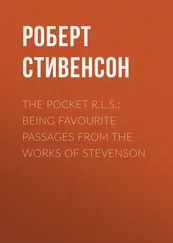1 ...7 8 9 11 12 13 ...17 The price we pay to build a positive habit
What is the kind of mountain water that we need to clear and rest our mind? You will find some small things throughout this book, which you can make a habit. Yes, habits are not only negative, but the positive habits don't always come for free. It is commonly said among psychologists that you can’t get rid of a habit unless you replace it with another one. The price we have to pay for our new habit is 1) intention, 2) repetition, 3) a little bit of patience, and last but not least 4) a longing in our heart. The first two we usually know very well, however, we mostly make use of our determination rather than intention, to get to the goal. Besides, determination and repetition alone will not suffice to change an ingrained habit of ours. We know that, and still, that's what we do. Intention implies a lot less pushing and wanting than determination. Intention is like directing the arrow towards the target, knowing that it will get there once we let go, while determination is like running after the flying arrow, to make sure it gets there. It only wears us out.
The third aspect patience I find very crucial. This type of patience is more than accepting that the process may take some time, it includes being kind to yourself. In that sense, it's almost the opposite of determination. Some may use the term self-love, but personally I cannot relate to that. It may be a gender-based difference in the west. Maybe a man is good to himself while a woman loves herself. Whatever works for you?
Sometimes it helps me to add a little bit of curiosity to the process. The wish to explore, to find out, to learn. We must never make life strenuous or tedious. This is paving the way for number four, the heart. Remember, the heart is not so much about blunt desire, it's much more about a sincere longing for what matters because ultimately the heart is a spiritual tool. Throughout the book, you will find more interesting details about this together with simple exercises to clear and rest your mind.
12 When nobody is at home - up there
Did you ever drive someplace and when getting there, you couldn't remember which roads you took? Did you ever read a book and at the end of the page, you couldn’t remember what you just read? Or you may have listened to a discourse, and after a while you realize you could not remember the last five minutes of the talk? We call that being absentminded. You are there, alive, driving, reading or listening but your mind isn't there. Your body is on autopilot. What we mean is, that our mind is distracted. However, metaphorically speaking our mind goes away, it is absent.
To fly a jumbo jet without autopilot these days is possible, but there is no reason to do so except for take-off, landing, and for emergencies. The autopilot does an excellent job and subsequently it is now the most frequent mode of operation. We are very much like those jumbo jets, flying around on autopilot.
When it comes to our lives, it serves us to make use of our autopilot to coordinate body movements, complex routines, etc. But if that autopilot also implies absent-mindedness, it may go too far for some of us. Personally, I never thought of this as a problem, because I didn't know it could be any different. So why to bother about something we have accepted as a given fact. Please consider, that the same mind that loses itself while reading a book is leading your company. And the worst of all is, that it is yours.
How cool is that to make love absent-mindedly? How about talking to friends absent-mindedly? To watch the most beautiful sunset with your loved one beside you, but absentmindedly. I'm quite sure we can get by, and live an average life with only 10 percent awareness, the mind being on autopilot 90 percent of the time. We may have allowed our autopilot to take over our lives, but we are paying a price for it. In autopilot mode, the aware and conscious part of the mind doesn't have much to do, and it starts drifting. Our awareness even tends to drift off where we don't want it to drift, such as when we read, drive, work, eat, make love, etc. We end up doing things, actually living our lives, without anybody being at home up there. The owner is on vacation, and the guests have taken over the house. Your habits and reactions very much correspond to the autopilot, and they are running your life. They have not only taken over, but they have also outnumbered you. When were you last able to change a habit of yours? When you think about it, you may realize that even if you have substantial willpower, it's not easy.
As long as you indulge in your autopilot way of life, you are not really in charge of it. And if you are not in charge of your life, how can you then claim to lead others? Therefore, awareness needs to be one of a leader's prime qualities. Everybody should live a life with a high degree of awareness, but for the leader that is not an option.
Do the simple things with great awareness
The easiest way to go about it is to do simple daily tasks with awareness. Stepping out of your bed in the morning, sipping your coffee, brushing your teeth, locking the door, walking, you name it. This represents a small but significant beginning.
"Concentrate every minute on doing what’s in front of you with precise and genuine seriousness, tenderly, willingly, with justice. And on freeing yourself from all other distractions, (...) you do everything as if it were the last thing you were doing in your life."
Marcus Aurelius , Roman emperor
The rudder is a small but essential part of an ocean liner or a freight ship. To change the direction of such a massive ship, the captain adjusts the rudder by a few degrees, and very slowly and gently this enormous giant will make a turn. It will not turn immediately, as your car does when you turn the steering wheel. No, it will take some time. But a captain would never consider a rudder useless, just because it takes time. However, we tend to get restless, expecting immediate results, therefore, we use our willpower. Actually, we not only use it but tend to overuse it.
Recent studies indicate that if we overuse our willpower, we start doing irrational things as well as taking bad decisions. Ego depletion is the scientific term describing this phenomenon.
Having the power of the rudder in mind, we can start adjusting small things. In this case, we start doing daily, simple chores and activities with awareness. Even if it is, just to observe how your fingers move over the keyboard as you write an email. Touching the keys, while being aware of that touch. All that sounds highly unproductive for achievers, for everybody except that captain, who trusts the unfailing power of his small rudder. We should take on that quality of a captain, to be able to start taking charge of our very own lives. This tiny but firm adjustment will represent more than just the first steps of change. It will change the course altogether. Just remember the captain. It all starts right there, with the trusting captain and the unfailing rudder. Personally, when working with awareness, I combine it with curiosity, because it produces a sense of joy in me, which keeps me going. We must never make life boring.
Different types of awareness
Awareness is what separates the wheat from the chaff. It makes all the difference. Without it, we will daydream through your lives, and never even know the difference between wants and needs. Even worse, we will not know the power of being.
It is important to make a distinction when it comes to awareness, because there are two types. If we learn to stay in touch with the first one, our lives will improve substantially, but if we establish contact with the second type of awareness, it is likely to give our lives more depth, and may even change our lives on a profound level. The first one is to be aware of the most obvious things, the things out there around us. The second and infinitely more precious, is the awareness of the subtle things of life, the world within. It's like a paradigm shift.
Читать дальше












